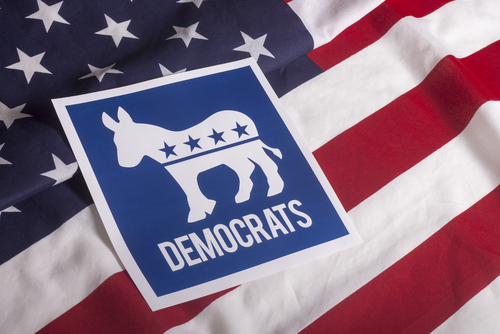Congresswoman Jasmine Crockett has sparked controversy with inflammatory remarks against political opponents, calling for Elon Musk to be “taken down” and suggesting Democrats should “punch” their way to the ballot box. In a recently surfaced video, the Texas Democrat specifically targeted Senator Ted Cruz, stating he “has to be knocked over the head, like hard” and that there should be “no niceties with him.” While defending her comments as non-violent, Crockett’s aggressive rhetoric raises questions about the deteriorating civility in American political discourse.
Crockett’s Inflammatory Statements Against Political Opponents
Representative Jasmine Crockett’s comments were captured in a viral video in which she expressed frustration with what she perceives as Democrats’ insufficient aggression in political combat. Beyond her remarks about Ted Cruz needing to be “knocked over the head,” Crockett extended her confrontational rhetoric to Elon Musk, suggesting he should be “taken down.” The congresswoman made these statements while criticizing Senate Democrats for supporting a Republican-proposed resolution to prevent a government shutdown, which she viewed as capitulation rather than principled opposition.
Democrat Rep. Jasmine Crockett just said Republicans need to be “punched” and Ted Cruz should be “knocked over the head, like, hard.”
She also mocked Pam Bondi, claiming she can't be touched unless the J6ers are jailed first.
This isn’t politics. This is violent incitement. pic.twitter.com/84911857MH
— Desiree (@DesireeAmerica4) March 24, 2025
Crockett’s Defense and Explanation
Despite the harsh language employed in her comments, Crockett has since maintained that she never promoted violence. She framed her statements as calls for more assertive political advocacy rather than physical confrontation. “I think that as empathetic [as] we are, we need to show that we have always been the party that will fight for what’s right for all people,” Crockett explained, suggesting Democrats should take more substantial positions in political battles. She praised Colin Allred, saying, “And I love Colin, and I think toward the end he started to punch a little harder.”
Jasmine Crockett is calling for Elon Musk to be taken down on her Bday March 29th, and says Ted Cruz needs to be punched in the head
Raise your hand ✋️ if you want Speaker Johnson to censure her and remove her from any commitees she's currently on
pic.twitter.com/c69VhC5Tzj pic.twitter.com/qLmA5tiQon
— @Chicago1Ray 🇺🇸 (@Chicago1Ray) March 24, 2025
“But, like, it’s Ted Cruz. I mean, this dude has to be knocked over the head, like hard, right? Like there is no niceties with him. Like at all. Like you go clean off on him.”
Criticism of Democratic Leadership
Much of Crockett’s frustration was directed at Senate Minority Leader Chuck Schumer and other Democratic leaders who supported the Republican resolution to avoid a government shutdown. While Schumer defended his position by stating that a shutdown would harm everyday Americans, Crockett expressed disappointment in what she viewed as an unnecessary compromise. Her criticism reflects growing tensions within the Democratic Party between those who favor bipartisan cooperation and others who advocate for more confrontational approaches to Republican proposals.
Double Standards in Media Coverage
Critics have pointed to what they perceive as a double standard in media coverage of inflammatory political rhetoric. Some observers note that if a Republican representative had made similar statements about Democratic opponents or prominent liberal figures, the media reaction would likely be more widespread and forceful. This disparity in coverage highlights the partisan lens through which political speech is often filtered, with aggressive rhetoric sometimes being excused or downplayed when it comes from politicians aligned with specific ideological perspectives.
Implications for Political Discourse
Crockett’s comments come when many Americans express concern about the increasing hostility in political conversations. While passionate advocacy has always been part of American politics, language that can be interpreted as encouraging physical confrontation further erodes the foundation of civil discourse necessary for democratic functioning. The incident raises important questions about the responsibility of elected officials to model respectful engagement even while strongly disagreeing with political opponents and advocating for their constituents’ interests.
As partisan divisions continue to deepen in American society, incidents like this underscore the challenge of maintaining democratic norms while engaging in vigorous political debate. Whether Crockett’s comments represent a momentary lapse or signal a broader acceptance of increasingly aggressive political rhetoric remains to be seen. Still, the controversy highlights ongoing concerns about the health of American political discourse.

